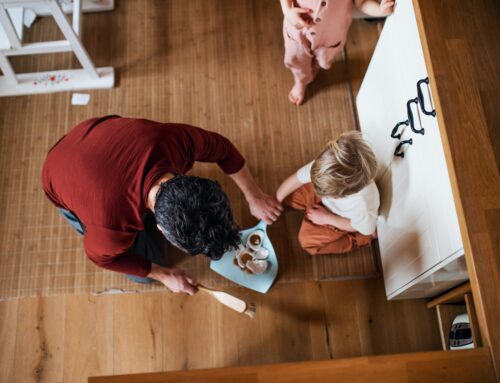 Your relationship with your body is referred to as your body image. You have a body image if you have a body. Body image is less about your actual size, weight, or shape and more about cultural, political, racial, peer, social, and family values. The messages you receive from friends, family, social media, commercials, coaches, and a variety of other sources affect how you feel about your body.
Your relationship with your body is referred to as your body image. You have a body image if you have a body. Body image is less about your actual size, weight, or shape and more about cultural, political, racial, peer, social, and family values. The messages you receive from friends, family, social media, commercials, coaches, and a variety of other sources affect how you feel about your body.
It doesn’t take long for a bad body image to become internalized. especially if you use social media frequently. Body image relationships can be challenging, just like any other kind of relationship. Your thoughts, feelings, sensations, perception of size and shape, and behaviors all relate to your relationship with your body. Your level of body dissatisfaction can be mild to severe.
Some symptoms of poor body image are plain to see, like avoiding the beach because of shame over one’s appearance. Other behaviors brought on by a negative self-perception of your body can be subtler, such as frequently taking casual glances in the mirror to assure yourself that your body is “ok.” Even you, with your own body, may find it difficult to recognize the subtle symptoms of poor body image.
The fact that poor body image is accepted as “normal,” as if it is just how it is and of no concern, is one of the reasons subtle signs can be challenging to spot. (The “normative discontent.”)
Seven Symptoms of Body Image Issues
Here are seven of the most prevalent non-obvious warning signs of poor body image.
Negative self-talk about your body.
Even if you keep it to yourself, it isn’t necessarily benign just because you haven’t said it aloud. Self-criticism prevents you from feeling confident and having fun. Consider this scenario: you are at the beach with friends or family. The sun is shining, and you put on a brand-new bathing suit. Your disgust with your body is all you can think about.
 You keep saying mean and hurtful things to yourself that you would probably never say to a friend or a loved one, and you keep having negative thoughts about your body. (Or perhaps not even to a total stranger or a foe!
You keep saying mean and hurtful things to yourself that you would probably never say to a friend or a loved one, and you keep having negative thoughts about your body. (Or perhaps not even to a total stranger or a foe!
If your kids are with you when you go to the beach, they probably know that you criticize your body either openly or covertly. Children internalize messages about having a poor body image and pick up on subtle signs of poor body image, such as frowning when you look in the mirror.
Refusal to eat.
You claim you are not hungry when it is time for lunch, even though you are. You again say no when everyone else gets ice cream. You might also find a low-calorie substitute, all because you feel inwardly unworthy of taking part in the fun and believe that you are “too fat.”
Constant comparison of your body to others.
You might say or do this aloud or just do it in your head. Let’s stick with the beach illustration. The sun is shining, and you’re wearing your brand-new bathing suit. However, all of your attention is on other people’s bodies and how they compare to yours. You miss out on your children’s enjoyment as they construct sandcastles.
Or consider another illustration. You enter a room (at work, your children’s school, the bank, or anywhere else). You look around the room right away to see if anyone has a larger body than you. Or where you fall on the range of body sizes among those in the room. You might not even be aware that you are making the comparison because it has become automatic.
Social comparison.
Jealousy over a family member’s, friend’s, celebrity’s, or even a stranger’s weight or “more attractive” physique. Even if you don’t know anything about someone, you might have an immediate dislike for them because they have a body that is more in line with the cultural ideal. Jealousy or envy over her physique may be an indication of a negative self-image. If you find yourself wishing you looked more like that person, consider why you automatically regard your body as less attractive.
The cancellation of social plans.

Preparing to go out with college friends is a typical example. Someone decides at the last minute not to go because she “looks bad in everything.”
She would prefer to stay in because she can’t find anything she feels at ease wearing. She starts hating herself and gets stuck in negative self-talk about how ugly she is. Feels enraged, jealous, and most definitely not in the mood to go out after that, and therefore gives up having fun with her friends because she is unhappy with her body. These emotions affect other aspects of her life as well.
Racism, sexism, sizeism, and weight discrimination.
All of these “isms” are harmful. We are all impacted by engaging in these behaviors, regardless of our size or weight.
The last form of prejudice that is still considered acceptable is fat stigma. You support weight stigma when you chuckle at jokes about weight or make fun of people with larger frames. And doing so might be a sign that you don’t feel good about your own body. This justification is offered out of sympathy. After all, we reside in a culture where eating disorders are the norm.
Let’s say you have prejudicial feelings toward the morals of people with larger frames, even though not every person of a certain body size is the same, similar to how different people of a particular ancestry or height are.
An “us” vs. “them” mentality.
You may think that you’ll never “let yourself go” like “those people,” as if one could fully control their body weight, or that everyone must fall within a certain weight range, or that there is a causal relationship between size and health.
However, fear of becoming “fat” may help to perpetuate the stigma and discrimination. Living in constant fear of gaining weight denotes a conditional relationship with one’s own body. With just one mistake, bang! You’ll “get fat,” and after that, you’ll hate your body.
 The fact that body dissatisfaction can result in restrictive eating patterns, excessive exercise, purging, and other eating disorder behaviors is just one of the many reasons it’s crucial to recognize even subtle signs of a poor body image. Additionally, having negative feelings about your body reduces your quality of life.
The fact that body dissatisfaction can result in restrictive eating patterns, excessive exercise, purging, and other eating disorder behaviors is just one of the many reasons it’s crucial to recognize even subtle signs of a poor body image. Additionally, having negative feelings about your body reduces your quality of life.
So what do you do about negative body image?
For the majority of us, moving off the grid is not a viable option. The same goes for cutting off all social contact or unplugging our electronics permanently.
1. First, be aware that ideal body types are constantly shifting.
The frequency of standard changes suggests that the standards are only transient.
No matter how much dieting, self-starvation, exercising, applying makeup, or expensive plastic surgery someone undergoes, they will always be more attractive.
2. Maintain your power.
You are in charge of how much social media you use. Curate with care. Instagram and other appearance-focused social media platforms increase body dissatisfaction more than social media that emphasizes informational content. Consume social media in moderation, especially if it makes you feel bad about your appearance.
3. Avoid obsession with social media.
Discipline yourself not to scroll through accounts of people who might cause you to have body dissatisfaction-related thoughts or actions. Instead, look into different kinds of accounts. A break from Instagram and/or other social media sites is preferable.
Your body is not an advertisement. It does not stand for accomplishment or failure, right or wrong, or morality or immorality. Your body is where you live. The roots of your family tree and the accumulation of your experiences form its foundation. Everyone’s family tree and life experiences are unique to them. So, of course, there will be a variety of bodies, and for that, we are grateful.
“What Should I Wear?”, Courtesy of Getty Images, Unsplash.com, Unsplash+ License; “Stopping to Text”, Courtesy of LinkedIn Sales Solutions, Unsplash.com, CC0 License; “The Face in the Mirror”, Courtesy of Elisa Photography, Unsplash.com, CC0 License; “Hangin’ Out”, Courtesy of Eliott Reyna, Unsplash.com, CC0 License
-
Kate Motaung: Curator
Kate Motaung is the Senior Writer, Editor, and Content Manager for a multi-state company. She is the author of several books including Letters to Grief, 101 Prayers for Comfort in Difficult Times, and A Place to Land: A Story of Longing and Belonging...





